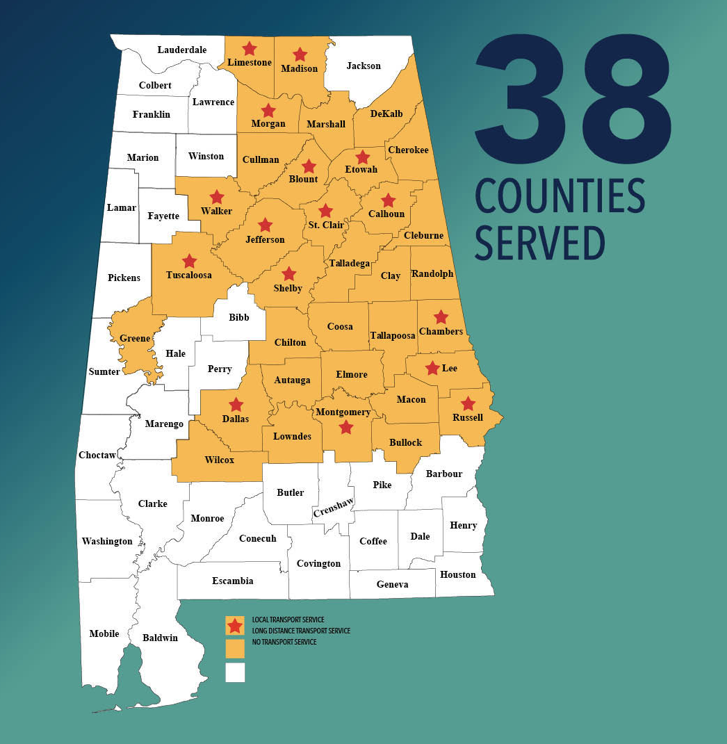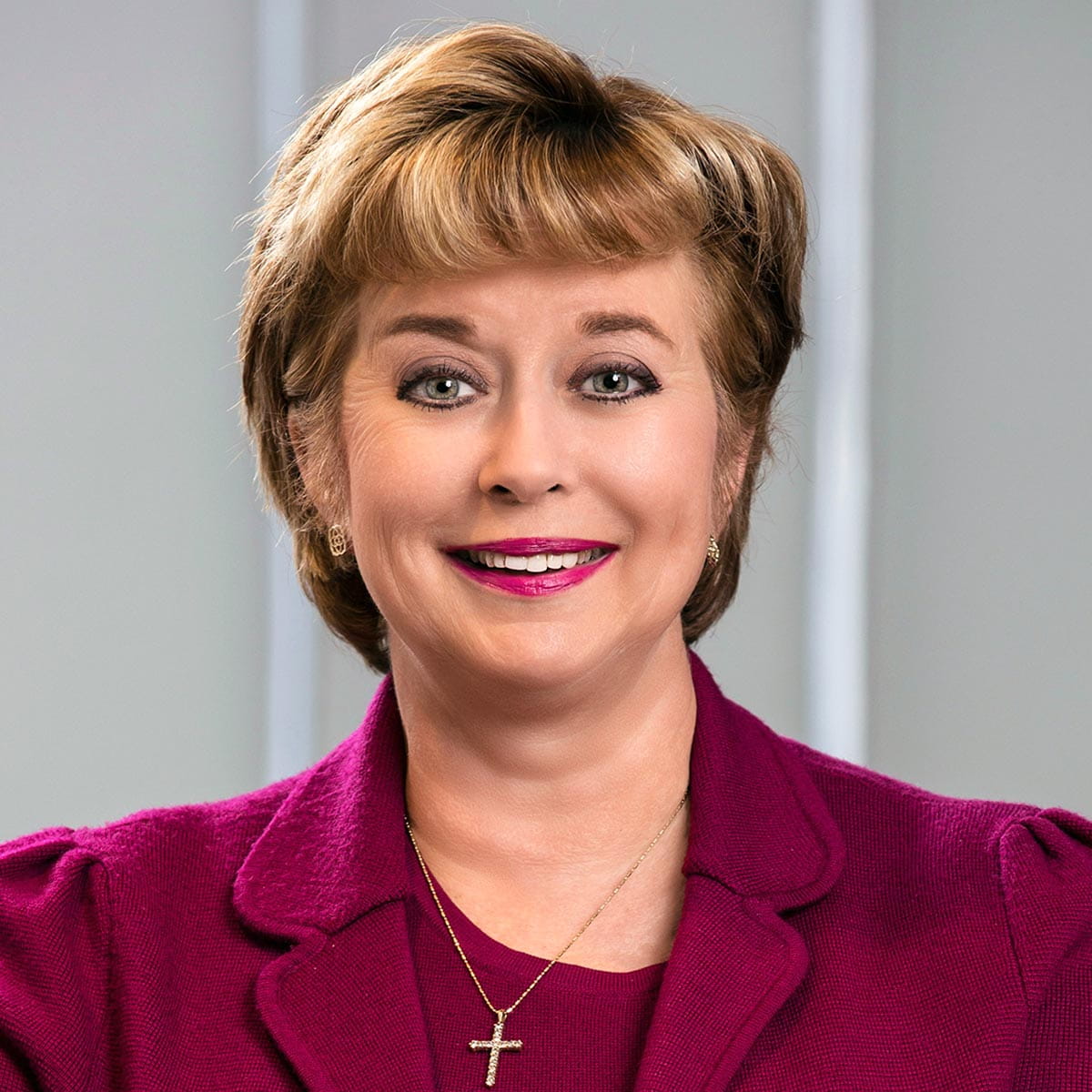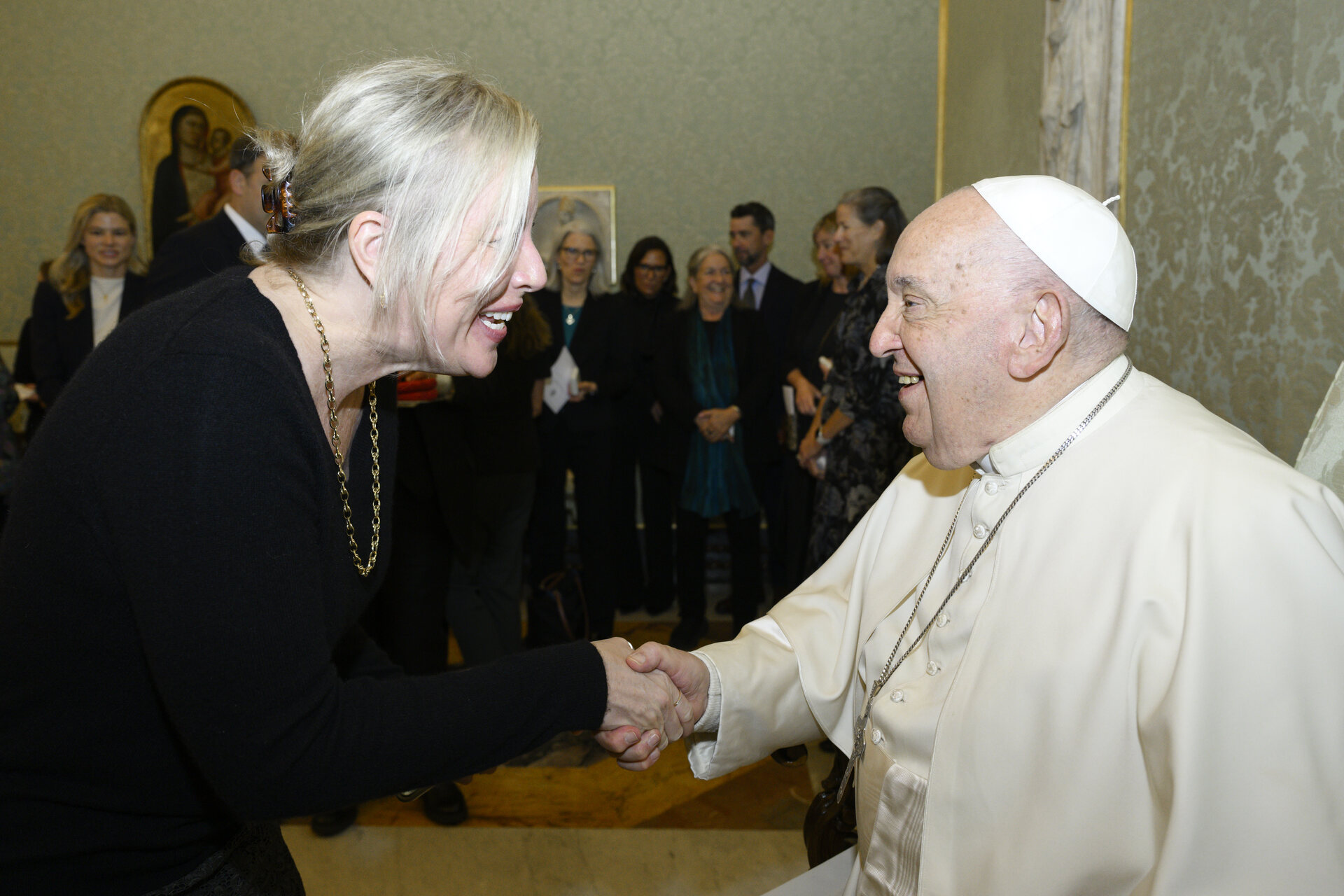KidOne
April 11, 2025
“They found us”: An Alabama nonprofit’s connection to the Ascension Foundation
In many of the rural Alabama counties that KidOne Transport System serves, quality healthcare can feel completely out of reach.
First, there are fewer providers, and clinics may only be open a few days per week. Residents of rural communities are also less likely to have insurance than those in urban areas. Finally, there’s transportation.
“You can have healthcare facilities. You can have insurance. But if you don’t have transportation in rural Alabama, and it’s 30 miles away, it might as well be 1,000 miles away,” said Matt Holdbrooks, president of KidOne.
That’s where Holdbrooks’ organization comes in. Operating 19 vehicles across 38 of Alabama’s 67 counties, KidOne provides safe, reliable transportation so expectant mothers and children can reach their medical appointments, which may be the next county over or a couple of hours away.
A child who needs dialysis in Alabama, for example, will likely have to travel to a Birmingham, Ala., hospital for treatment, whether they live a few miles from the facility or in a county next to Tennessee. KidOne is ready to help in either scenario.
Holdbrooks used Ascension Foundation funds to advance a key organizational priority – retaining and attracting the talent necessary to provide this vital service. The Foundation’s support allowed him to move quicker, without cutting into other strategic needs.
Holdbrooks used Ascension Foundation funds to advance a key organizational priority – retaining and attracting the talent necessary to provide this vital service. The Foundation’s support allowed him to move quicker, without cutting into other strategic needs.
“Healthcare access is a challenge, not just in Alabama, but throughout the nation,” he said. “That’s why I applaud these guys. They come in and they’re trying to find the solutions.”
Thoughtful discernment – to launch systemic change
From the beginning, Ascension leadership understood national change would not happen through “cookie-cutter approaches,” Foshage said. They envisioned connecting with other like-minded national partners – individuals and organizations – to support local, community-based solutions. Ascension might then have the opportunity to spread successful responses from one state to another
Leaders also knew this wasn’t a short-term commitment, and they were purposeful about taking time to develop the right structure and focus areas.
“One of the habits I had to break when I came out of public accounting and went into not-for-profit healthcare was moving really fast, at warp speed,” Foshage said. “I learned early on from the Daughters of Charity and from the Sisters of Saint Joseph the value in taking time for discernment, taking time to listen to a lot of different voices to ensure whatever the good work that we’re delivering is meeting the right needs and is doing so in the right way.”
“I’m very used to Ascension going slow at the beginning of an initiative to then move fast, because we want to make sure we get it right. We want a lot of voices to be heard,” she added.
“Giving as many people as possible a good start”
Foshage wasn’t surprised that postpartum support became an early focus for the Foundation. Across the country, one in every 50 babies is born at an Ascension site. And the organization worried about rising rates of infant mortality, postpartum depression and maternal mortality.
“It’s a very Catholic way of expressing our ministry, by supporting mother and child,” she said. “It’s very central to our hospitals and what they do for the communities, and I think it’s also very personal for a lot of our Ascension associates.”
With two daughters, one step-daughter and two grandchildren (and another on the way), Foshage deeply understands the need to provide for new mothers and their families at a vulnerable time. After 32 years at Ascension, she retired as Executive Vice President and CFO in 2024, but immediately joined the Foundation’s Board, moved to continue extending care to others.
“I just feel like giving kids a really solid foundation and start in life is a major advantage in raising loving, compassionate citizens, community members, adults. That’s what I want to continue doing – giving as many mothers and children as possible a good start.” she said. “It just makes me feel really good, as a mother, as a grandmother, to be building these resources for women, both those with and especially those without monetary means.”
____
Additional quotes:
-
We just felt like this was a real opportunity to go back to our origins of looking at what communities need, and how we could start addressing those needs. We tapped back into how the religious sisters started most of our hospitals and healthcare ministries – they saw that a community needed healthcare. We did a lot of research into where the need was, and where our abilities, interests and compassion fit the needs of the nation and the community. Over the next couple of years, this is what really evolved.”
-
We wanted to figure out how to multiply those dollars and then spend them in the right place. So it was not a ‘one and done.’ We were looking for sustainable and systematic change and improvement. We really wanted to be a place of refuge, to heal and help care for people, and set up models that could be replicated.”
- One of the things just within Ascension, as we think about healing people, we think of holistic healing, body, mind and spirit, and really focusing on human origin. Yes, they can get a physical cure, but we really want for them to feel whole again, mentally and spiritually. We think about human flourishing.”



